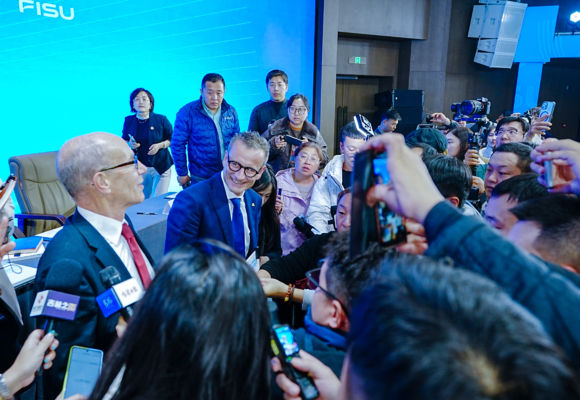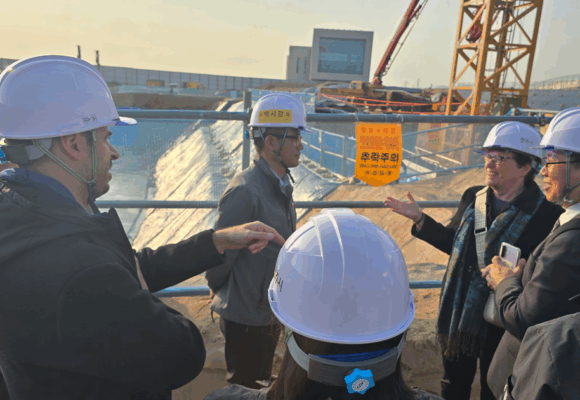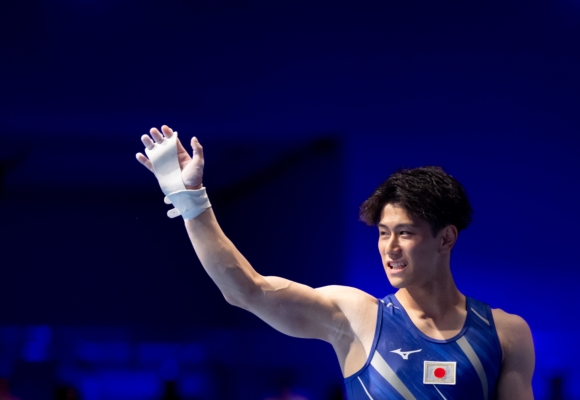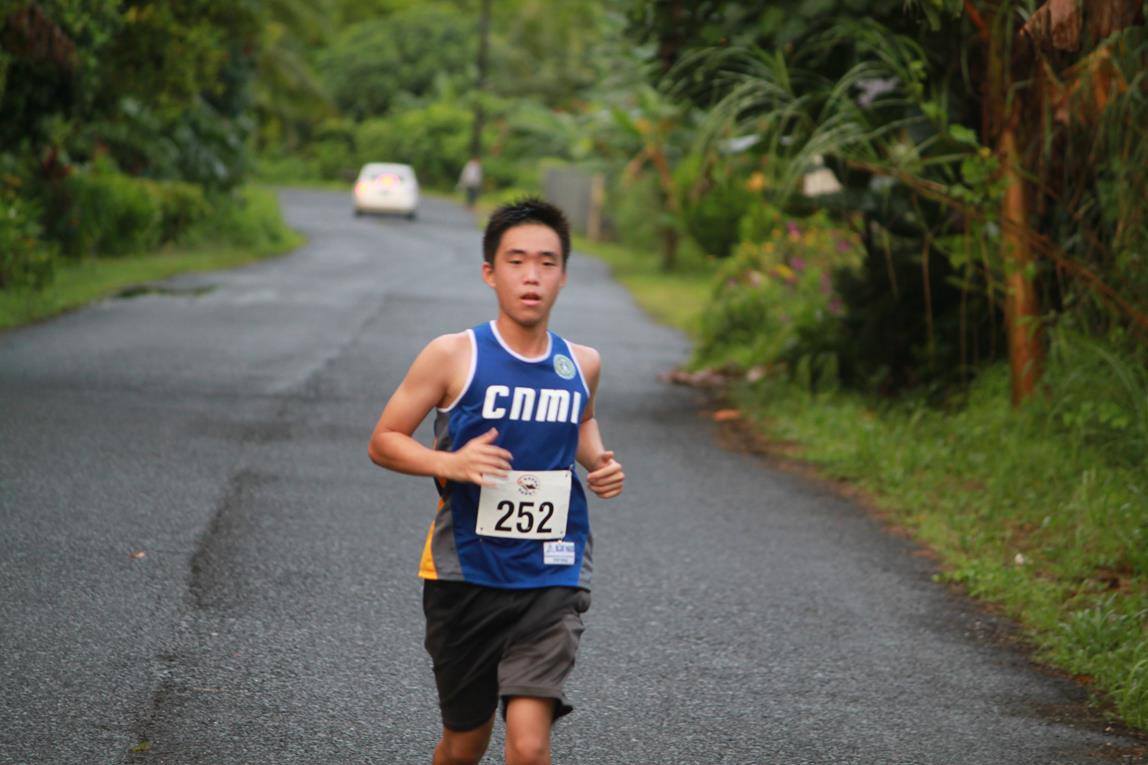 When we think of sporting nations we often think of athletic powerhouses like Russia, Great Britain, or China who claim dozens of medals at major sporting events. But some of the most inspiring stories come from athletes representing smaller nations, with smaller populations, in faraway corners of the world.
When we think of sporting nations we often think of athletic powerhouses like Russia, Great Britain, or China who claim dozens of medals at major sporting events. But some of the most inspiring stories come from athletes representing smaller nations, with smaller populations, in faraway corners of the world.
One such story is that of runner Seiya Eda, from the archipelago of the Northern Mariana Islands. Although a territory of the United States, the Northern Mariana Islands, which lie roughly halfway between Australia and Japan, sends their own representatives from among their 50,000 population to many sporting events, including the FISU World University Games.
Eda, who was born in Japan but emigrated to the Northern Mariana Islands at an early age, describes its capital Saipan, “It’s a really small island. It has some great beaches and nature in general. I think it’s a beautiful place, but from a young age there’s not many things to do. So, a lot of people are into sports.”
In that ‘small island’, Eda found his passion for sport and his never-give-up attitude, which helped him get onto the world stage as he represented his home at the Gwangju 2015 Summer Universiade in South Korea.
“The first day I landed in Korea, and then went over to Gwangju, I didn’t really know what to expect,” Eda said of the event. “From the beginning, a lot of local people lined up and welcomed us, flags going everywhere and so many people, it was a crazy experience.”
Although Eda recalls feeling nervous at first, and a sense of pressure as the only athlete from the Northern Mariana Islands at the games, he quickly felt welcome in large part due to the hospitality of the Korean people.
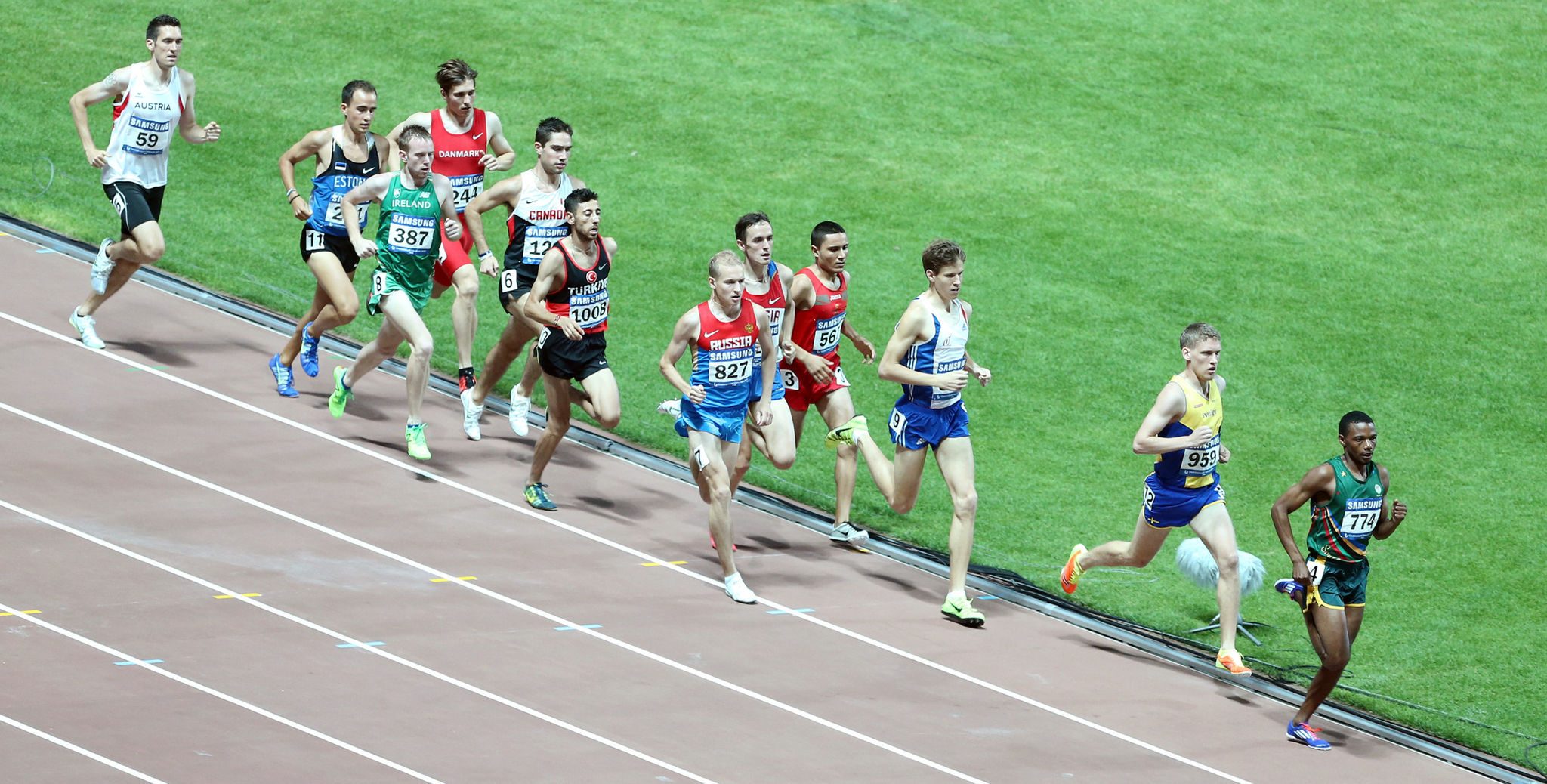 The men’s 1500m race at Gwangju 2015
The men’s 1500m race at Gwangju 2015
Beyond nerves, Eda notes his pride in representing his adopted home on the world stage even as an immigrant himself. “Living in Saipan, and representing my island, I never once thought of a barrier between me or anyone else,” Eda said. “That just motivated me even more to represent my place, not really for the place but for the people.”
But sports didn’t always come easy for Eda, who spent much of his young life playing a number of different sports, as he describes it, with little success. “Growing up I was actually very poor at sports, but I used to play soccer a lot. I was terrible,” Eda recounts.
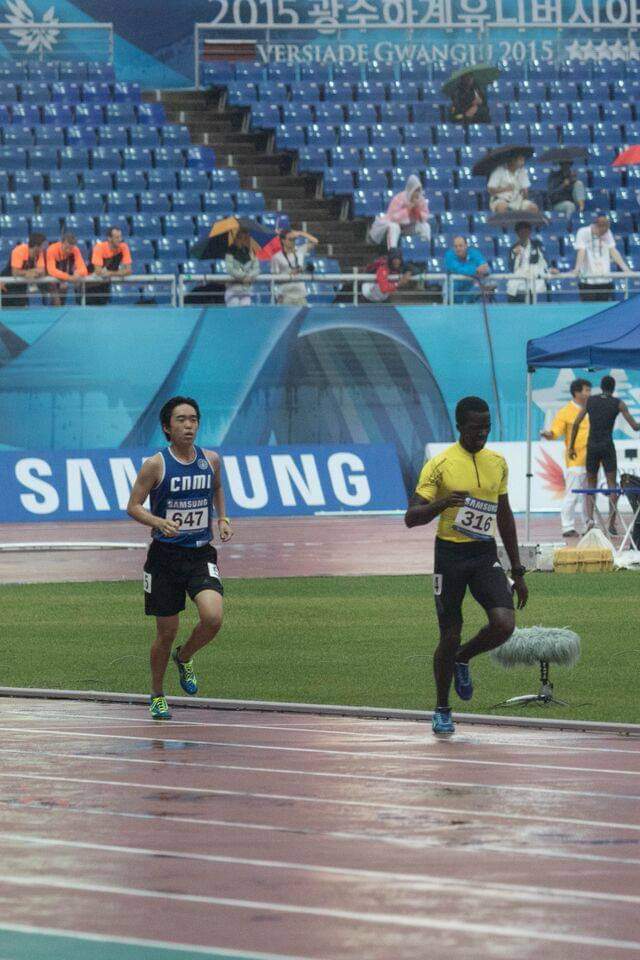 “When I hit the end of junior high, I did a mile run at school. It was my first time and I actually got second place out of everyone. So, I was like, ‘okay, this is pretty nice,’ because I’ve always been bad at sport.”
“When I hit the end of junior high, I did a mile run at school. It was my first time and I actually got second place out of everyone. So, I was like, ‘okay, this is pretty nice,’ because I’ve always been bad at sport.”
After retiring from running in 2015, Eda began to study business at university in Malaysia. But his plan was quickly turned on his head when his friends recommended he go down a different path. “They motivated me to try out engineering and I felt like I had no clue, and wondered how I was going to do that. I wasn’t the best at mathematics, but I did like crafting stuff and creating things since a young age. So, I said, ‘why not?’ and I tried it out. It worked out,” Eda said.
So Eda dove into the deep end once again, this time moving to the town of Ames, Iowa where he completed his degree in industrial engineering at Iowa State University. The move from equatorial South East Asia to the Midwest of the United States was not only a big jump geographically. “It was very cold. I was living in Saipan so it’s quite a contrast from living in a tropical island to minus 40 degrees in the winter,” Eda said with a laugh.
Listening to Eda recount his story, the narrative becomes clear; his tenacious attitude allows him to succeed when even at first, the odds may be stacked against him. In his eyes, much of this comes from his experience with sport.
“When I first started taking engineering classes, it was not pretty. I’ve had times where I failed a class, but it never really occurred to me to quit at all,” Eda said. “I just reflected and reinforced the fact that as long as I keep doing it, I’ll make it sometime, someday.”
Eda humbly notes that largely, it was the people around him who helped him get to where he is today. From his family, to his coaches Kurt Barnes and Jack Kabiriel, to his friends, and teammates, they have all left a positive lasting impression on Eda’s life.
“They’ve always been there and always pushed me towards getting better, even if it’s step by step,” Eda said.
For the next generation of athletes from Saipan, Eda has a simple message, “It’s just about trying out everything. If one thing doesn’t work, it doesn’t mean that everything else won’t work either.”

